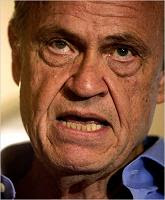Writing for broadcast is really a two part process...what you write, and then how effectively you
edit your own work. You should be a very critical editor at all times in the process, from when you first formulate a
theme for your story, to just before you hand it over to another
editor to get his or her take. So, it's a good idea to have a
vision for your story...we'll go over that in a bit.
Before we get too deep into the idea of "story visioning" - it's important to know what to
listen for in your own work, and in the works of others. You have a chance to model your work after a story you admire, and use some of the same techniques a favorite reporter uses. So,
how to listen?Here's a very handy guide to listening...it's called:
Questions for Listening
Courtesy Andrea DeLeon, National Public Radio
What is the specific focus of the piece...what's it about?
Did the piece make us care?
Are the stakeholders all here? Are their points balanced?
Is there too much information? Not enough?
Is the piece written for the ear...you know, to be listened to, not read?
Are there scenes in this piece? Visuals? Can you see what's going on?
How could more sound and more scenes improve this story?
Could it be made simpler?
Is the structure of this story the best it can be?
Ask yourself these questions as you listen to stories being told, and you'll be teaching yourself to think like an editor.


